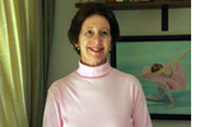

SUNDAY, JULY 27Israeli artist Shosh Ernst one-woman show in San Diego
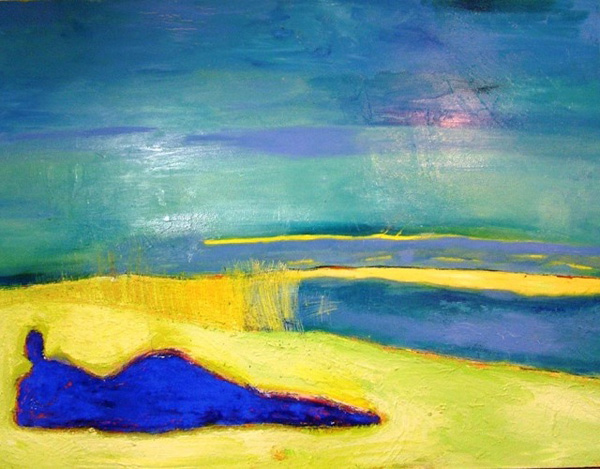
MONDAY, JULY 28
.jpg)

SATURDAY, AUGUST 2-SUNDAY, SEPTEMBER 7

FRIDAY, SEPTEMBER 12, 2008 Temple Solel S'more Shabbat
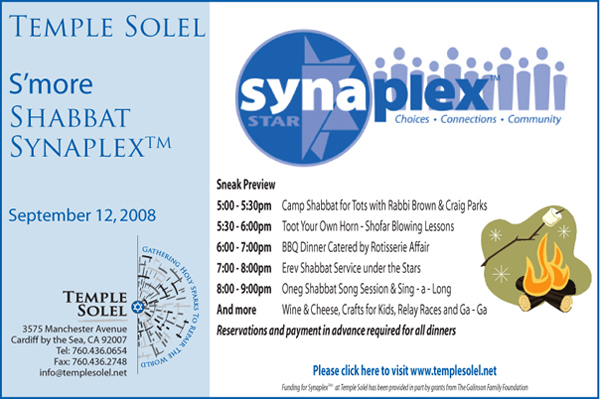
___________________________________________________________________
MON., SEPT. 29-THURS., OCT. 9


THE VIEW FROM JINSA
Senator Obama in the Middle East: Part I
By Shoshana Bryen
 WASHINGTON, D.C.—It is hard to know exactly what Sen. Obama said to the various people with whom he met as he swept through Afghanistan, Iraq, Jordan, and Israel and visited the Palestinian Authority on what he called a "Senatorial fact-finding trip," not a campaign trip. But what emerges is interesting. WASHINGTON, D.C.—It is hard to know exactly what Sen. Obama said to the various people with whom he met as he swept through Afghanistan, Iraq, Jordan, and Israel and visited the Palestinian Authority on what he called a "Senatorial fact-finding trip," not a campaign trip. But what emerges is interesting.
In Iraq, Sen. Obama ended a meeting with the Iraqi prime minister and announced that he and the prime minister agreed on a timetable for American withdrawal. What the prime minister actually said is the subject of some dispute and should be seen in the context of his own electoral issues. But it was, at a minimum, very indiscreet of Sen. Obama to quote to the press what al-Maliki told him in private. More important, the fact that a presidential candidate said he had engaged in diplomacy with a foreign leader at precisely the moment the President of the United States was engaged in diplomacy with that leader is unbecoming one-upsmanship. President Bush is Senator Obama's President. Can't the candidate even wait until the election?
Substantively, Sen. Obama acknowledged that Gen. Petraeus and the commanders on the ground do not want a fixed timetable for withdrawal, and that the Sunni leaders in Anbar agree. (Those would be the Sunni leaders who ousted al Qaeda from Iraq.) Sen. Obama said he would weigh their concerns against the requirements of Afghanistan and the United States economy. This leads to two thoughts: First, if we weigh our economic interests against our security interests and our economic interests win, they will win only temporarily. Second, how does Afghanistan come to have a higher priority than Iraq?
It is a Democratic mantra that Iraq is a "diversion" from the "real war" in Afghanistan. Why? Why are we obligated to Afghanistan, a collection of warlord-dominated regions that overlap the boundaries of the entity we call Pakistan, itself not clearly a country? Is it because the Taliban is there? So what? What threat exactly does the Taliban pose to American interests? Is it because al Qaeda is there? American intelligence officials, including the DIA and CIA directors, have told the Senate Intelligence Committee that al Qaeda is leaving Iraq primarily for Pakistan and using the tribal areas to mount attacks in Afghanistan. But American troops are prohibited by Pakistan from pursuing them there.
This leads to two thoughts: First, unless Sen. Obama is ready to declare war on Pakistan, or invade it without declaring war, increasing the U.S. and NATO presence in Afghanistan while denying them access to al Qaeda bases is a recipe for long-term instability and long-term casualties. That is an untenable situation and one from which we should consider withdrawing. Second, even if we can't touch Pakistan, it is far, far better to have al Qaeda up in the badlands than it would have been if al Qaeda had established its operating base in Iraq, as it intended and as we prevented.
Iraq is part of the historical center of the Arab world - Baghdad was home to universities a millennium ago. It would seem reasonable for the West, and the U.S. in particular, to believe that the ouster of al Qaeda from the center to the fringes, and the emergence of a stable, democratic Iraq constitute a victory of strategic importance.
One would wish Sen. Obama could see it that way.
Next: Jordan, Israel and "Palestine"
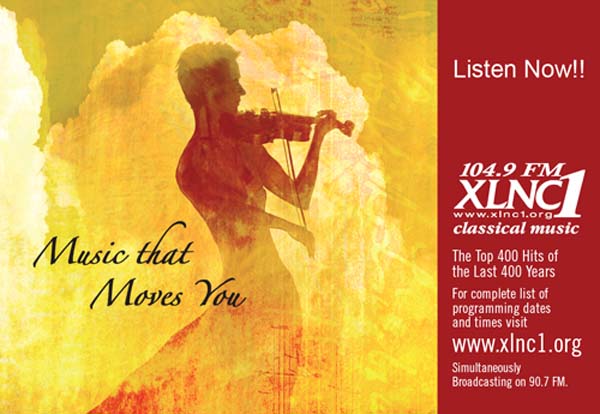

LETTER FROM JERUSALEM
Israel's embarassments: Katsav, Olmert
By Ira Sharkansky
 JERUSALEM—Israel chose for itself a president and a prime minister who should not have held those offices. JERUSALEM—Israel chose for itself a president and a prime minister who should not have held those offices.
Both are tangled in criminal investigations that seem endless. Aside from resulting in their ouster from office (not yet accomplished in the case of the prime minister), neither process may produce significant punishment.
The case against the former president, Moshe Katsav, is beginning to smell from age. The police and prosecutors have been working on it for two years. It began when Katsav shot himself in the foot by complaining to the attorney general that an employee was trying to blackmail him. Since then two employees claim to have been raped, and there are countless tales of sexual harassment. The prosecutor dithered about the charges that would stand up in court. The woman making the most serious charges seemed likely to be a poor witness. The prosecutor and president agreed to a plea bargain that would entail a resignation, relatively minor charges, and no jail time. The president suspended himself from office and then resigned a short time before his term was to end. The plea bargain fell apart in the face of demands reaching the supreme court that trial courts be able to consider the most serious charges, and Katsav's insistence that he had done nothing wrong. Occasionally he has denied having sex with any of those women.
The prosecutors are again considering what charges to bring.
Prime Minister Ehud Olmert has been the subject of criticism from the State Comptroller, and investigations by the police and prosecutors as he climbed through minor and major public offices since the early 1990s. Currently there are six or more investigations, mostly about actions alleged to have occurred before he became prime minister. The number of inquiries depends on how one separates or joins actions that overlap even while they refer to distinct issues and participants.
For the better part of a week, we have been entertained by the testimony of Morris Talansky concerned with the transfers of large amounts of cash. Occasionally the media labels him "Uncle Moish," reflecting an appealing personality who sang a political ditty in court, and approached the attorney who was the leader of a prolonged attack against him in order to express a lack of hard feelings. We have seen a film that Olmert made in celebration of Talansky's 70th birthday. It is a testimony of great praise that Talansky used in promoting his business interests.
The same man is "Mr Talansky" when described as a political and business operator who worked for himself while working for others. He evaded, or did not recall, when pressed by questions that seemed likely to produce criminal charges against him in the United States and/or Israel.
The conventional wisdom is that Olmert's political career is all but over. So far there have been no clear signs of serious bribery or other crimes likely to produce a long prison term. A generous view is that he is guilty of what George Washington Plunkitt called honest graft:
Yes, many of our men have grown rich in politics. I have myself. I’ve made a big fortune out of the game, and I’m gettin’ richer every day, but I’ve not gone in for dishonest graft—blackmailin’ gamblers, saloonkeepers, disorderly people, etc . . .
There’s an honest graft, and I’m an example of how it works. I might sum up the whole thing by sayin’: ‘I seen my opportunities and I took ’em’.
How did Katsav and Olmert get as far as they did? Do their careers signal anything basically corrupt about Israeli society or politics?
Both had long careers in the Knesset. Katsav languished in lower and middle ranking ministerial positions until he appeared as Likud's candidate for the presidency against Shimon Peres in 2000. Insiders claim that Katsav's sexual appetites were well known among government secretaries and members of Knesset, but the mood was "anybody but Peres." One Knesset member reports that several of his colleagues hoped that the presidency would reform Katsav.
His public face was that of a non-controversial president, who expressed himself correctly, until that fateful complaint to the attorney general.
Olmert climbed higher in ministerial positions than Katsav. He eventually won the big prize when Ariel Sharon suffered the stroke that ended his career. Shortly before the election that confirmed Olmert as prime minister, the lead article in Ha’aretz weekend magazine, spread over 12 pages, was headlined, ‘Prime Minister of Lack of Evidence’. It detailed numerous cases where he was accused and investigated, but ended with no charges brought, the case closed, or dismissed for lack of proof.
Since then, Olmert has also survived widespread public criticism, as well as a damning official report, about his performance in the war labeled Lebanon II. Talansky's testimony, for all of its quirks, may be enough--along with other information recently exposed--to produce criminal charges and end his career.
The Promised Land is not paradise, and its public servants are not angels. We can quarrel as to whether Katsav and Olmert have been more or less immoral than John F. Kennedy or Richard M. Nixon, more or less foolish as policymakers than George W. Bush.
We always hope for better. Often we select the least undesirable of competing candidates. We are not shy in criticism. The judicial process is slowed by procedures that assure protections to the accused. It also suffers from an overload due to a surplus of characters who do not qualify as angels.



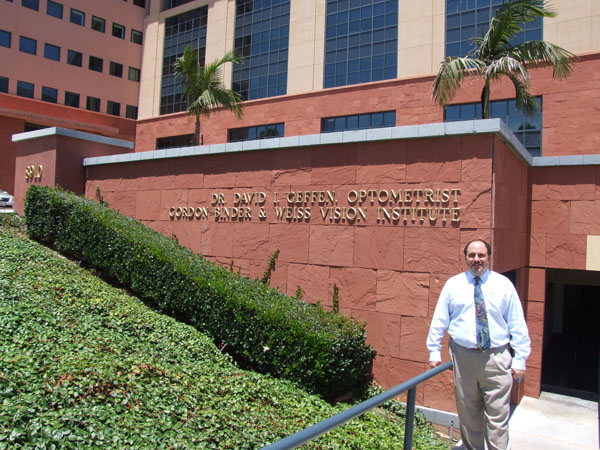
THE JEWISH CITIZEN
Maccabi Games: 'portals' for Jewish youth
By Donald H. Harrison
 LA JOLLA, California—Given that Dr. David I. Geffen is an optometrist, it’s probably not surprising that people want to know what his “vision” as a co-chairman of the August 3-8 JCC Maccabi Games is for the six-day youth sports extravaganza. The answer may surprise you, however, LA JOLLA, California—Given that Dr. David I. Geffen is an optometrist, it’s probably not surprising that people want to know what his “vision” as a co-chairman of the August 3-8 JCC Maccabi Games is for the six-day youth sports extravaganza. The answer may surprise you, however,
It’s not to develop new Jewish football stars like Ron Mix or Igor Olshansky, or swimming phenomena like Mark Spitz and Lenny Krayzelburg —although Geffen wouldn’t object if that were the outcome of the competitions to be held at various venues in San Diego County. Rather, Geffen, a former president of the Lawrence Family JCC here, talks about the magic that happens when you assemble 1,300 visiting athletes and 300 local competitors under Jewish auspices.
Geffen had attended five opening ceremonies of the games over the years as his own children—Brian, Michelle and Nikki-- came up through the ranks. Although Nikki, the youngest of them, is now 17, too old to compete in the games for 12-year-olds through 16 year-olds, all three young Geffens will be participating in some manner: either as assistant coaches or volunteering to help the games come off smoothly.
The anticipation is that the competitors will feel the ruach—the spirit—from the minute opening ceremonies get underway at 6 p.m., Sunday, August 3, at the Cox Arena at San Diego State University, through the Monday, Tuesday and Wednesday of preliminary competitions, to the final events and championship matches on Thursday, followed by closing ceremonies that evening on the field at the Lawrence Family JCC.
Geffen, whose co-chairs include Ruthie Warburg, who has led numerous Maccabi game delegations over the years, and Lake Elsinore Storm baseball team owner Gary Jacobs, says of the opening ceremonies that “except for being in Israel, I don’t know any other place where you can be sitting with 8,000 other Jews. … It’s always an amazing feeling to be in the arena with all those people when they come marching in with their hometown flags and pennants. Each contingent will be led by our Junior Maccabi, kids 7-12, who aren’t yet old enough to participate in the games. “
The ceremonies will include singing, dancing, and some performance by local youth, as well as “a moving tribute to the Munich 11”—the eleven Israeli athletes who were murdered by terrorists at the 1972 Olympic games. “Every year at the Maccabi games there is always a tribute to the Munich 11, and then in another part of the ceremony, we will have surprise entertainment, and it all will culminate with the lighting of a cauldron,” said Geffen Then we invite the kids to come down on the floor, to participate together in singing and dancing, and to begin mixing.”
Geffen said there was a time when his daughter Michelle played girls’ soccer that not enough girls from San Diego joined the Maccabi team. It turned out to be a blessing in disguise: the San Diego girls were joined on a team with some girls from New York. “She is still best friends with this girl that she met from New York and when her family comes to San Diego, they stay at our house, and we go to their house.”
The youth “build up something outside of the synagogue, outside of the educational world; it’s a week when everyone lets kids be kids, have fun and be with all these other Jewish kids,” Geffen said. This is the first Maccabi games of Summer 2008; later similar games with different teams will compete in Detroit, Michigan, and later in Akron, Ohio.
From the Jewish communal standpoint, said Geffen, “the whole intention is to bring in people who have never been touched by anything else. We’ve had athletes whom no one knew they were in town, and volunteers who are not associated with anything else in this community. So the games are to try to bring people in, to give local kids a little more of a Jewish feeling, and hopefully they will get more involved with the other agencies in town, and it will benefit the community as a whole.”
Geffen described the games as a young person’s “portal” to the Jewish community. “Unless you are going to a Jewish day camp, or a Jewish sleep-away camp or a Jewish day school, a lot of these kids have no other Jewish thing in their lives,” he said. “We have had many kids who come and participate in the games and then suddenly decide that they want to go to the Jewish Academy; that they now have the identity that they yearn for.”
While the athletes will be competing in such team sports as soccer, basketball, volleyball, baseball, and flag football, and in such individual sports as golf, tennis, swimming, table tennis, bowling and dance, the heavily-scheduled week of activities also includes a tzedakah project in which all the athletes are expected to participate. Called “Maccabi Cares,” it will involve staging carnival games in two locations throughout the week at both the Lawrence Family JCC and at Canyon Crest Academy, respectively in the La Jolla and Carmel Valley communities of San Diego.
The Maccabi Cares program is co-chaired by Caryn Viterbi and Marcia Tatz Wollner who have arranged the schedule so that when athletes are not involved in events, they will be able to reach out to “children at risk from various San Diego areas who will come to both areas to participate in a fun day,” Geffen said. “They will be given carnival-style foods, with lots of fun for the kids, and lots of fun for the athletes.”
For ease of logistics, the local JCC Maccabi Games will be conducted mainly in La Jolla (at UCSD, JCC and La Jolla Country Day School, where Nikki Geffen is a senior and a cheerleader) and in such Carmel Valley venues as San Diego Jewish Academy, Cathedral Catholic High School, and at Canyon Crest.
Geffen said efforts to find residential housing for all the visiting athletes was a success, but that volunteers to keep score and perform other tasks are still needed. If you want to get involved, you may call the JCC Maccabi Games hotline at (858) 262-1128.


San Diego County Jewish Trivia Sports
Adapted from San Diego Trivia (1989) and San Diego Trivia 2 (1993)
{Editor’s Note: Retired librarian Evelyn Kooperman, a friend to the Jewish community, enjoys playing the cello and collecting trivia about her native city of San Diego. This concluding column in a series excerpts Jewish communal items from her two books, San Diego Trivia (1989) and San Diego Trivia 2 (1993). Readers should note that the information has not been updated since the books were published. Kooperman still has a limited supply of the two books, which cover the general San Diego community in all its aspects. Either of the two volumes sells for $5 and may be obtained by telephoning the author at (619) 461-6095.}
By Evelyn Kooperman
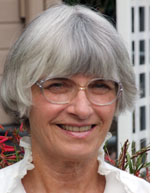 SAN DIEGO—Q1. What former catcher for the San Diego Padres became the team’s owner in 1944? SAN DIEGO—Q1. What former catcher for the San Diego Padres became the team’s owner in 1944?
Q. What renowned artist was commissioned by the Hotel del Coronado to paint a picture of the Old Polo Fields with the hotel in the background?
Please click here for answers
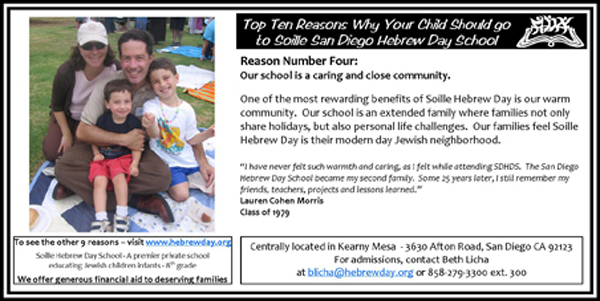

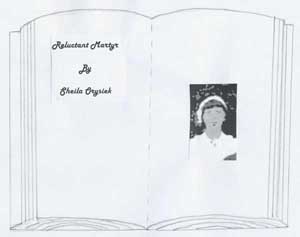 Editor's Note: This is the 18th chapter in our serialization of Reluctant Martyr, a historical novel by our columnist Sheila Orysiek. It is based on the experiences of her aunt. In each Friday-Saturday edition of San Diego Jewish World, we will run another installment of the 21-chapter book until its conclusion. We thank Sheila for granting us first publication rights to her book. Comments to the author are welcome at orysieks@sandiegojewishworld.com Editor's Note: This is the 18th chapter in our serialization of Reluctant Martyr, a historical novel by our columnist Sheila Orysiek. It is based on the experiences of her aunt. In each Friday-Saturday edition of San Diego Jewish World, we will run another installment of the 21-chapter book until its conclusion. We thank Sheila for granting us first publication rights to her book. Comments to the author are welcome at orysieks@sandiegojewishworld.com
Chapters 1 2 3 4 5 6 7 8 9 10 11 12 13 14 15 16 17 18 19 20 21
Reluctant Martyr—Chapter 18
For several years after the war the country experienced a booming economy and irreversible changes swept through the cities. There was a great need for housing and people began to leave the inner cities for the suburbs as new houses were built. Etah and Bernard bought a home in the Overbrook Park section of West Philadelphia. And so, Sharona, Hannah and Istvan were the only members of the family left in the old neighborhood.
Hannah’s friends, May and Oscar Overman threw a very large party to celebrate their wedding anniversary in a ballroom at a beautiful old hotel on Rittenhouse Square. A twenty piece orchestra entertained while tables and tables of food were spread for about two hundred guests. Hannah was standing with a group of people at this party when May Overman introduced her to Sam Love.
“Sam,” she said, “I want you to meet a dear friend of mine, Hannah Perris.”
“How pleased I am to meet you,” Sam replied. “If you are a dear friend of May’s, I can only hope you’ll be my friend too.”
Hannah found Sam special from the moment she met him and it left her almost speechless. He was a bit taller than she, slender, blonde, with clear skin and deep brown eyes. There was about him, if not a delicacy, at least a refinement, which Hannah found very appealing. One by one the others around them left to go out onto the dance floor and she and Sam found themselves alone. He shifted his weight from foot to foot and then almost as though it were a brand new thought, asked her to dance.
“Mrs. Perris, would you consider giving me this dance?’ he asked rather cautiously.
“Please call me Hannah. Yes of course,” she said as she moved out toward the center.
He was quite a good dancer with natural grace of movement. The music was too loud to hold a lengthy conversation, but he did tell her he worked as a typesetter for the Philadelphia Evening Bulletin newspaper. After the music ended they were rejoined by the other guests. Though Hannah tried to converse and be a part of the entire group, her eyes always seemed to gravitate toward Sam. Shortly after the dance he came to her side.
“Mrs. Perris - Hannah, may I tell you how much I’ve enjoyed meeting you? May I...would it be possible for me to call on you sometime?”
“Mr., uh, Sam...that would be nice. Are you leaving?”
“Yes, I have to go. It’s been a wonderful evening and I hope I can meet you again. It’s been such a pleasure for me.” He smiled at her and then reluctantly turned and walked away. Sam was the only thing on Hannah’s mind for the next several days. She knew he could get her telephone number from the Overman’s but the telephone didn’t ring; at least not from him.
Hannah began accepting invitations from various men who were interested in her. She never seemed to lack in this regard. Jeremy was a school teacher and through a mutual friend got to know Hannah. He took her to hear the Philadelphia Orchestra at the Academy of Music. The orchestra, one of the finest in the world, gave a wonderful concert that night. This time she didn’t sit in the least expensive seats, but in the fine main section of the theater and after the concert Jeremy took Hannah out for dinner. It was evident that he took great care in planning the evening with her. Jeremy called her often and wanted to see her as frequently as possible, he obviously had special feelings for Hannah. She was unenthused.
“Now mother,” she said one evening, “if I get a phone call from Sam...”
“Who’s Sam?” Sharona asked as she looked up from her sewing.
“Someone I met at the Overman’s party, he’s really nice. Let me know if he calls, won’t you? I’m sure he will very soon. He said he really liked me...and he’s different...special.” Hannah’s eyes sparkled as she spoke of him.
“Jeremy called. He wants to see you.”
Hannah shook her head, “No, no! I’m not interested in him.”
“He’s nice, Hannah. He takes you places, buys you chocolates almost every week. He really likes you.”
But Hannah was sure. “I just want to know if Sam calls.”
“Why,” her mother wanted know, “don’t you want the one who likes you so much? Anyway the last time he called I invited him for supper Friday night.”
Hannah was shocked. “You did what? Asked him over here? Your inviting him for supper will make him think I’m interested in him! Oh, no! Mother!”
“Give him another chance, Hannah. You’ll see you might change your mind.”
“I tell you I don’t like him!”
“Tell me why? What’s wrong with him?”
Hannah wrinkled her nose in distaste. “I don’t like the way he eats. He doesn’t use his silverware correctly; slurps his soup and his tea.
“Maybe on Friday night, it’ll change,” Sharona told her hopefully, thinking all the while it was a foolish reason for not liking someone.
..................................................
When next Hannah saw Sam it was during a weekend at the Overman’s house in Nashaminy where he, too, was one of several weekend guests. The group spent the better part of one afternoon walking through the fields picking the fruits and vegetables they would eat that evening. City folk trying to decide which ear of corn was ripe or how to pick peas gave them an excuse for much laughter. Hannah found a watermelon that looked good and Sam came over, cut it from the vine and carried it back to the house. They sat in the sunshine on the warm paving stones outside of the kitchen, shucked the corn and occasionally pelted one another with the green leaves.
Supper was served under the hanging fronds of the willow tree and as dusk fell colored lanterns were lit and soon they could hear the frogs begin to croak down by the stream. It was a glorious weekend, but for Hannah it was special because of Sam. He spent every possible moment with her.
During the week, back at home on State Street, the telephone rang steadily, but it was never Sam. Jeremy called to take her out for her birthday and heartsick over not having heard from Sam, she went. He brought her a dozen roses and a box of chocolates and then took her to a famous restaurant on Chestnut Street. The dining room was lovely and lit mostly by the glow of candles; it was a most romantic setting.
“Hannah,” he said softly, “my dearest Hannah, I want to wish you a very happy birthday.”
“Thank you, Jeremy,” she answered, never looking at him.
His eyes never left her face as he continued to speak. “I hope I can share many birthdays with you!” he declared. The waiter came over bringing their soup. Hannah carefully used her spoon, moving it away from her and winced as Jeremy simply scooped his up. “Hannah,” he persisted as he dipped his bread in the bowl, “I have an important question to ask you....”
“Please, would you ask the waiter for some tea?” she interrupted.
“Yes, of course,” and he waved to the man and then went on, “I, as you must know, or have guessed, like being with you very much and...the lady would like some more tea,” he said to the waiter...”Well, I have a steady job, earn a nice living....”
“I don’t like this soup,” she said suddenly, “do you?”
“Why, yes, ...well...maybe not...as I was saying...well, what I really want to say...ask ...is Hannah will you have me...marry me? I will do everything I can to make you happy and...”
She really didn’t know what to say. She didn’t want to hurt him, but she wished he was more like Sam. She thought Jeremy was very ordinary. She knew he liked her, even loved her, but she didn’t find that exciting. “Jeremy, I am not thinking of marrying anyone right now. After Jahn,” and here she paused to quell the sob in her voice, “I don’t want to get hurt again.”
“I would never hurt you, Hannah, never. I want to make you happy. Believe me.” Then he paused, “Maybe in the future,” he said hopefully.
She nodded her head but her voice was distant. “Maybe, maybe.” Her mind was on Sam.
When she came home she put the roses and chocolates he had given her down on the table, went to her room and closed the door. A few minutes later Sharona knocked softly and entered. Hannah was sitting on a hassock by the front window and the light from the street lamp cast a soft glow and dimly lit her face.
“Hannah, what’s the matter? Are you sick? Did something happen?” Sharona asked.
With a deep sigh, Hannah said, “Jeremy has asked me to marry him.” She kept looking out of the window, over the houses across the street, past the neighborhood.
“That’s wonderful! He’s a very nice man, I like him. I think he’ll make you happy. What will....”
“I’ve already told him “no” mother.”
“Hannah! You are making a mistake!” Hannah shook her head but Sharona went on. “When someone loves you that much you should reconsider. Love does not come often. You’ll have a home of your own....”
“Has anyone else called while I was out? Did Sam Love call?” Hannah asked.
“Sam! Sam! Who is he anyway? He’s never even called you and yet...that’s why you said no to Jeremy! I tell you again you are making a big mistake.” But Hannah had walked out of the room and down the hall to the bathroom. She turned on the light and looked fixedly at herself in the mirror. There was a little thickening around her neck and some gray hair just beginning at her temples. She couldn’t alter her neck, but she would get some dye for her hair tomorrow.
Several days later when the phone remained stubbornly silent she called May Overman. “May, this is Hannah. I would like to talk to you a minute...are you busy right now?”
“No, Hannah, I’m glad to hear from you.”
“Do you think by any chance that Sam Love has my phone number?”
“Yes, he asked me for it and I have given it to him. Hannah, he is perfect for you and I know he likes you.”
“Does he know I’m a widow...not married?”
“I’m sure he does. Have you seen him?”
“Not since the weekend at your house.”
“Listen, Hannah, I have to go - but - if I see him I’ll mention you again to him.” As Hannah hung up the phone she felt renewed hope.
Days went by and a black cloud descended on her mind and as she often did at such times she took her mother and went downtown to buy a new dress. They started at Gimbel’s and then walked all the way up Chestnut Street to Broad Street stopping in a dozen different shops. Occasionally when Hannah wasn’t looking Sharona took out the medicine Dr. Werner had given her and put a drop or two on her tongue as she felt her chest constrict. They were turning the corner and getting ready to go down to the subway when walking toward them was Sam.
“Why, Hannah!” he exclaimed, “How nice to see you.” He took off his hat. “How do you do? I’m so glad I ran into you like this!” Suddenly Hannah’s world was smiling again. They stepped to the side out of the crowd. She introduced him to her mother. “I have a pair of tickets,” he was saying, “it’s for a play, would you like to go tomorrow?”
“Oh Sam!” Hannah said as she tried to maintain her calm. “I’d really like that!”
After he left, Sharona said to her daughter, “Well, I must admit he is very nice looking.”
“So, you see mother! Isn’t he wonderful?”
“Wonderful? I don’t know yet. I’d have to know him a bit longer for wonderful. How do you know he’s so wonderful so soon?” Sharona went on muttering to herself. “Good looking is not the same as wonderful.”
Hannah was happy beyond words. She could scarcely sit through supper that evening, but like a young girl, kept running to her closet to select and reselect a different dress for tomorrow night. She thought her newly dyed hair looked beautiful.
All the next day Hannah spent getting ready, and then she changed her mind and started all over again. Sam called for her in a cab and he looked so handsome in a dark blue suit. He was extremely attentive and the play and supper were excellent, too. Afterward they walked along Broad Street and down Walnut and talked effortlessly. He told her about his favorite books and the things he liked to do and that he had never been married and except for two brothers and their families, he was alone. She learned he had an apartment on Girard Avenue several blocks from 40th Street, and he told her about the grumpy landlady who owned the place. When he called a cab and took her home it was almost dawn, they had walked all night. At the door he took her hand and gave it a little squeeze and then he said goodnight.
Hannah was floating as she went up the stairs. She lay in bed with the covers over her eyes to shut out the morning light and relived every word, every minute of the night before. She began to realize that the only thing she wanted in life was to marry Sam Love.
During the week a new man called her and asked to take her out, but she didn’t even want to talk to him. When Jeremy called she had Sharona give him some excuse. Otherwise the telephone didn’t ring. As the days went on her mood clouded again and she was reduced to tears. Two weeks went by and then it happened. The phone rang and it was Sam Love. He had been out of town but now was back and would she like to go somewhere?
As she hung onto every word, the doorbell rang and then she heard Sharona crying, “Oh No! Oh No! No! No!” Hannah dropped the phone and ran into the hall. Two policemen were standing there, one had his arm about Sharona holding her up.
“What has happened? Mother! Here bring her in here! Lie down on the sofa. Mother!” Hannah ran and got Sharona’s medicine from her purse in the sideboard.
“This is your mother?” the officer asked.
“Yes....”
“And Istvan Molovsky is ....was...your father?”
“Step-father,” Hannah answered as she wrung out a cool towel to put on Sharona’s forehead. “Tell me what’s happened?”
“The report is he was running to catch a trolley, on South Street, I believe.” He asked his partner, “Was it on South Street?”
“Yeah, South Street.”
“And he just collapsed on the sidewalk. He apparently died right away.”
The second officer came over and handed her a piece of paper and said “Call this number and tell them where you want the body sent.” The police left and Hannah cradled her mother in her arms as the two of them sat in the tiny parlor. Much later when Hannah pulled herself together and went to call Etah she found the telephone still dangling where she had dropped it while talking to Sam.
The funeral was the very next day. It was held in a small mortuary on Girard Avenue and neighbors, family and some of Istvan’s customers came. Sam had somehow heard what had happened and he came, too. Hannah sat next to Sharona and she looked over at her mother and saw she was quite calm. Sharona had reached an age when the inevitability of death had robbed it of passion. After the death of her little grandson, Brian, she seemed beyond tears. She was grateful for the years she and Istvan had had together. They were a great comfort to one another and they found a quiet happiness. He had become a beloved member of the family, filling a niche left empty by a father who had been killed so many years before in Russia.
A young rabbi did his best to eulogize a man he had never met. On Hannah’s other side was Sam and she was glad that he was there. Her mind wandered as the rabbi’s voice droned on and she couldn’t help but notice how nice Sam looked that day; he always looked nice. She could see he was concerned and solicitous of her mother. His hand was on the arm rest between them and in spite of herself she longed to take and hold it, but she could not overcome her old world upbringing. They had never held hands.
....................................................
After Itzvan’s death, it became obvious from the outset that Hannah would have to go to work and she greatly resented it. A small amount of life insurance money was left from a policy on Istvan and it did not do much more than pay for the funeral. Hannah had frittered all of hers away and Yarosh impassively watched the dire financial straits of his mother and sister, still only giving Sharona $5.00 per week.
So, on a cold blustery day in March, Hannah took the EL downtown and got off at Fifth and Market Streets. She began at the corner on the south side and went into every shop and office along the way and asked for work. Some people smiled and said no, some merely shook their heads and others pointed to the way out. By the time she was at Ninth Street her feet were sore and by Thirteenth she had blisters on her heels. She crossed Market and started back on the other side. At Eleventh Street she limped into McClellan’s Five and Ten Cent Store and was given an application to fill out. When she had finished she handed it to a woman behind a barred window. “I’m ready to come to work,” Hannah told her, “would you like me to?”
“No, no. This is just an application. We’ll let you know.”
“Do you know when?”
The woman pursed her lips and said very slowly, “We will let you know.” It was the only application she was given that day.
Though she found the whole experience humiliating, Hannah continued to go into every shop and office all the way back down to Fifth Street and then took the train home. Sam was there; he and Sharona had been talking as they sat and waited for her. Supper had been kept warm and Sharona put it on the table and then went upstairs to bed. Hannah pushed the plate away; she was too tired to eat. She started to cry out of tiredness and frustration. “I walked up and down Market Street,” she said, “up and down. I went into every shop, and got nothing.”
“Why did you do so much, Hannah?” Sam asked looking at her sympathetically.
“I haven’t told you yet, but I need to get a job. Right away.” It was difficult for her to break the pretense she had kept up that she was happy. “Sam do you think....” She almost spoke her heart, but couldn’t quite manage it. Instead she said, “Look at my feet, blisters on the heels.”
“That’s awful! You didn’t have to do it all in one day,” he exclaimed.
“I need the work. I hate it. I remember how it was in the sewing factory. Someone always watching, yelling! But with Istvan gone we have no money. I need a job right away. Oh Sam!” she cried.
His face was full of concern. “Well, tell me, did you have any success?”
“One place, a five and dime store, had me fill out an application.”
“And?”
“And, they’ll let me know. That’s how they do things these days. “They don’t even say when they’ll let you know.”
“Hannah, I’m so sorry to hear about this. I wish I could help.”
As she looked up at him her heart was bursting to tell him how much she loved him. It would be so perfect a union, she thought; they were so well suited for one another. Why couldn’t he see that? She wanted so much to marry him, but she couldn’t break the code of silence her generation of women had been taught. At ten Sam left, wishing her a good night’s rest.
The next day the personnel manager from McClellan’s called and offered Hannah full time employment to begin in two weeks. She was to work six days a week from nine a.m. until six p.m. except on Wednesdays, when the stores downtown stayed open until nine p.m.; a twelve hour day.
That same week another man called who wanted to meet her. Sharona was upset with Hannah as she turned down these men without ever giving any of them a chance. “Hannah....”she began angrily, but she was quickly interrupted.
“I know what you’re going to say, mother. But I don’t want to see any of these others. They are not what I want.”
“Do you know what you want? Just give them a chance, is all I ask...for your own sake!”
“They are so ordinary!” Hannah complained.
“We are all ordinary! Everyone, just people, human beings. Not gods. Everyone has faults. Is it so important if a person makes noises while eating soup? You have to overlook some things.”
“Mother....” Hannah began, but Sharona was still bent on trying to change her daughter’s mind.
“Even Sam isn’t perfect. Do me a favor and just go out. Maybe, you’ll like this one.”
At Sharona’s insistence she did go out with this latest caller, and hated every minute of it. On the Saturday before she started her new job, Sam asked her to go to New York with him. “Hannah, we’ll spend the entire day there! How does that sound to you? We’ll go to all sorts of exciting places.”
“It sounds wonderful,” she said happily. She could feel her heart pulsing in her ears.
“I’ll come over early and we’ll go by train. We should be in New York in time for lunch. Tell your mother you’ll be home late.”
“Oh Sam! I’m so excited!” The thought of spending an entire day with him was like a dream to her.
As planned they were at the Thirtieth Street railroad station early in the morning, boarded a train to New York, and got off at Grand Central Station. It was the beginning of a wonderful day. Sam bought tickets for the ferry to visit the Statue of Liberty. He was American born and had never passed it on the way into the harbor as Hannah had. After a wait in a long line, they slowly filed inside and up the winding stairs. The public was not allowed in the hand and torch section but they did look through the windows in Liberty’s crown. For Hannah it was an emotional moment. The city and harbor were breathtaking in the patchy sunshine, but what she saw through the haze of memory was a young girl on a large passenger ship entering a new world.
They wandered into the Metropolitan Art Museum and then through a large library and walked and walked the fascinating streets of Manhattan. Hannah was especially impressed by the conglomeration of restaurants and the cuisines from every corner of the world. Toward evening they ended up at Rockefeller Center and saw the famous Rockettes. It was late when they took a train back to Philadelphia and sat watching the lights go by the window. Sam turned to her and took her hand. “You know when I’m with you I’m so happy, Hannah. The hours just fly by - much too quickly. I never knew I could be so happy! How about you?”
“I feel happy, too,” she replied in a whisper as she looked shyly up at him.
“It was a wonderful day and...it was special,” he paused struggling for words to express himself.
“It was for me, too, Sam.” That was all she could think of to say.
“And,” he continued, “being with you made it perfect.” She was thrilled by his words and looked hopefully at him, but he had turned back to the window.
..............................................................
Reality returned Monday morning when Hannah started work. The store was large and had a street level sales floor and a basement one too. Most all of the other clerks were young, much younger than she, and all were female. The woman with the pursed lips who had taken Hannah’s application, met her in the doorway of the personnel office in the back of the store. Hannah smiled at her. “Good morning!” she said brightly.
“I see you’re on time,” the woman answered as she checked her watch. “Be sure you’re on time every day.”
“I will be.”
“And we want you to dress nicely, too. A neat suit or dress, every day.”
“Do you approve of what I’m wearing today?” Hannah asked.
“Yes, but make sure it’s everyday.”
“Yes ma’am. Could you please tell me your name?”
“You may call me Mrs. Phipps, Hannah. She then walked down the hall and showed Hannah how to punch a card into the time clock and where to put her purse and coat. “You won’t have a sales counter of your own.” she explained, “You’ll substitute wherever you’re needed and you’ll be shown how to use the cash register. Do you have any questions?”
“No, Mrs. Phipps.”
“Hi, I’m Marie.” Hannah turned quickly at the sound of a friendly voice behind her. “I’m the head clerk, and you must be the new girl, Hannah.”
“Yes, pleased to meet you, Marie.” Hannah liked her immediately; the young, happy face and pretty smile were engaging. Marie led her onto the sales floor and behind a counter filled with sewing supplies.
“This is my counter,” Marie began, “and here’s the cash register. It’s not very complicated really. But, it does get busy once the customers come in. Now,” she said, pointing to a stool, “see that? Every counter has one but never, never sit on it. No matter what! Mrs. Phipps will be on you in a flash. She watches from a window upstairs and sees everything. Your job is to collect a stock request list from every counter on this floor and run up to the stock room and get the merchandise. That’s simple don’t you think?” Hannah nodded her assent. Marie continued on, “I’ll let you know when to go to lunch. Anything else you want to know, just ask me.”
The customers came streaming in the doors and a clerk across the store began shouting “Stock girl! Stock girl!”
“That’s you,” said Marie, “go over and see what she wants.” Hannah ran to the other end of the store and arrived rather breathless. The clerk handed her a slip of paper and pointed toward a staircase.
“Get these shirts for me from the stockroom, the customer is waiting for them. Hurry!” Hannah took the request list and ran up three flights of iron stairs to the stockroom. She found herself in a huge warehouse filled from floor to ceiling with row after row of boxed goods. There was no hint as to where specific items were kept. And, so her work began.
On one of her many trips down from the stockroom she stopped to use the restroom. “Oh, Hannah,” Marie explained later, “you have to ask permission to go to the bathroom! And be sure to sign in.”
Hannah looked confused. “Sign in?”
“Yes, on the door of the bathroom is a sign-in sheet. You have to write your name down and the time you went in and when you leave.” Marie rolled her eyes at the absurdity of it. “That’s the rules,” she said. Later Hannah found another sign-in sheet at the water fountain.
There was an hour for lunch at which time the younger women went out to shop and Hannah sat in the employee’s dingy lounge with her feet up. By early afternoon her back and feet ached; by six p.m. the pain was an active part of her life.
She got home at seven p.m., ate her super and went to bed. On Wednesday she had to be on her feet for twelve straight hours. Though the routine was simple the work was hard and it was an added indignity that the employees were seen as mere cogs in the selling machine. Management let it be known that each employee could be easily replaced and no one person was important. This attitude permeated her days. Worse, yet, at the end of the week she came home with only thirty dollars and that was not enough to sustain the household.
Now that Hannah was working six days a week, Sharona was all alone. Both sisters feared that should their mother become ill, no one would be at home to help her. For these reasons it was decided that Sharona would move in with Etah and Bernard and the house on State Street given up. Hannah would rent a single room for herself in a rooming house. But Hannah lost sight of this necessity and felt only the pain of separation which she blamed on Etah.
“I’ve spent my life taking care of our mother and now you’re taking her away!” Hannah sobbed to Etah.
“Hannah that’s ridiculous! I am not taking her away. How can you say that? You’ll be living in one room and....”
“It’s all I can afford! It’s not my fault.”
“I know that. But, mother will have her own room in my new house...” Etah tried to explain.
“And now you’re telling me about your new house!”
“You are very welcome there. You can come any time. What else can I say? I’ll be home to watch mom doesn’t get sick. You’re working and can’t to that.”
“Etah, all I know is somehow I’ve lost everything. I don’t know why, but I end up alone. You get it all,” Hannah cried bitterly.
On Sunday, her only day off, Sam helped Hannah look for a room to rent. As they went from place to place with the newspaper ads in hand, she wished with all her being he would suggest marriage and they could then look for a place for the two of them. It seemed like such a simple solution; but it did not happen. She ended up with a tiny furnished room at Parkside Manor right off Fortieth and Girard just down the street from the ice cream parlor. She chose that because it was what she could afford, and also it wasn’t far from where Sam lived.
All week Sharona packed and when Hannah came home, as tired as she was, she continued the work. Etah came over when she could and helped even though she was pregnant again. Sam helped, too. Most of the furniture, including the bookcase, would go to Etah’s house. “Hannah,” Etah asked as they worked, “what do you want to keep for yourself?”
“Nothing, I want nothing,” Hannah answered bitterly.
“Now Hannah, be reasonable, you need household things. How about dishes and towels? What else?”
The only things Hannah took were her clothes, the linens, some pots and pans, Sharona’s blue Depression glass dinnerware set and the silver wine cups from Russia. As Hannah looked about her, at the few boxes she would be taking, she again realized that somehow Etah had everything that she herself wanted; a husband, a home, and most of all Sharona.
On the last evening in that house on State Street, Hannah went to the bookcase, opened a drawer and slowly, reverently, took out the beloved memories of her youth and marriage to Jahn. The poetry book, the pearls, the embroidered linens, his wire spectacles; everything was carefully wrapped, placed in boxes and taped shut. These she carried herself to her new room.
The next day the movers came and after twenty years on that tiny street, they emptied the house. Bernard and Etah came for Sharona and asked Hannah to come, too, but she refused. When they had gone, she paused for a moment at the door and saw herself young and happy, looking for a place to begin her life with Jahn. The street had not changed much; or even the house for that matter, but she felt as if her life had begun and had ended here. She could never look at State Street without seeing Jahn playing his violin outside for the neighbors on a summer night. And, then, she was haunted by the sight of the hearse that had carried him away. She pulled the door shut and walked slowly, the box with his pearls and spectacles under her arm.
As she went away from State Street that afternoon, Hannah was very depressed. Sam had come over to help but finding the house already empty, hurried after her and seeing the mood she was in insisted on taking her out to supper. “Come on, Hannah,” he urged. “We’ll have a nice supper. Some place nice.”
“I’m so tired, Sam, "that’s all I can think of. I have nothing. No family. No house.” She almost added “no husband” but that would be too revealing and she bit her lip instead.
“We’ll eat somewhere close by,” he said as he looked tenderly at her. They ended up at the delicatessen near the movie house a block away from Hannah’s new room. “Now, Hannah,” he said encouragingly, “let’s try to look on the bright side.”
“Where is that? For me there is no bright side. Where? What?”
“First of all, you have only yourself to be responsible for. Isn’t that true?” She nodded reluctantly. “And,” he paused for effect, “you have me!”
“Do I? How do I have you?”
“Why of course! I’ll always be here. Rain or shine. Sleet or snow. Just like the postman!” And in spite of herself she laughed.
“Only you could make me laugh on a day like today, Sam. But, I’ll miss my mother...” her voice trailed off.
“We’ll visit. I’ll go with you. You’ll see.” She began to brighten and Sam grew expansive. “And we’ll have supper together and I’ll teach you to play chess!”
“Oh no, I’m sure I couldn’t.”
“I think,” he leaned forward conspiratorially, “you are a chess master in disguise!”
It occurred to her later that evening that perhaps her close relationship with her mother had kept Sam at arm’s length. She began to hope that would change now that she was living alone. The days readily fell into a routine; work, coming home and going to bed exhausted. She was filled with bitterness and loneliness almost overwhelmed her. After so many years of sacrifice, surely, she thought something must be due to her if there was any justice at all. At the end of a day’s work, walking into the dreary rooming house and up the steps to her room was a prelude to the cold, bareness of it all. It didn’t help that she needed a little more black dye for her hair these days. The only bright spot was Sam.
The room she had rented was up three flights of stairs. It was furnished with a sofa that opened out to a bed, a small table and lamp were nearby and at the other end, behind a drape, were a sink, stove and a couple of cabinets. A little breakfast table and two chairs were set by a window. A radiator ran behind the sofa and the room was a bit musty, but Hannah planned to clean and brighten it up. The bathroom was down the hall and had to be shared with the other tenants on the floor. At the head of the stairs was a public telephone as none was available in the rooms. By the foot of the stairs, just inside the front door was the landlady’s apartment. Her door was well placed as it allowed her to view all of the comings and goings of the tenants.
......................................................
Two weeks later, on a cold blustery Sunday, Hannah boarded a bus to Etah’s house which she had never visited before. She got off and walked up a long wooded hill toward the rows of brand new homes. They looked raw standing there; not yet a part of the earth. The few trees were winter bare and sod had not yet been laid at each house front. It started to rain just as she came to the door and Etah quickly answered her knock.
“Hannah, come in. You look cold. Give me your coat,” she said as she kissed Hannah’s cold cheek.
“Where is everyone?”
“Bernard worked all last night, so he’s still asleep. Mom and Sarah are in the kitchen.”
“Is that your new car?” Hannah asked stiffly as she pointed out the window.
“Well, actually it’s a used one, a couple of years old.” As they walked through the living room Hannah stopped in front of the bookcase; the statue of the lion was still in place striding across its top.
“My bookcase looks nice in your house.” Hannah could barely hide the sarcasm in her voice. It all looked so wonderful to her; everything that Hannah wanted for herself. In the kitchen Sarah was sitting over a bowl of soup and bread. Sharona was across from her reading a Yiddish language newspaper, her glasses on the end of the nose. “Mother,” Hannah exclaimed, “how are you?” She kissed her and sat down and held her mother’s hand. “Are you feeling well? Do you need anything? Tell me, are you being treated well?” As Sharona nodded in answer to the questions, Etah grimaced in dismay.
“Of course, she’s treated well, Hannah.” Etah said.
“Did you get wet, Hannah?” Sharona interrupted. It’s raining out.”
Etah brought more soup and bread to the table for Hannah, but Hannah looked at it with distaste. “What’s this?” she asked.
“Its vegetable soup,” Etah answered.
“From a can?”
“Yes.”
“You give our mother soup from a can?”
“She likes....”
“What’s the matter with you?” Hannah’s voice rose, “You don’t have time to cook properly? You are home all day with nothing to do!”
“Hannah!” Etah was astonished.
“You have such an easy life,” Hannah’s bitterness came pouring out, “a new home, a husband to take care of you and....”
“You have had your chances, Jeremy wanted to marry you. Remember?” Etah said, “You’ve thrown happiness away with both hands.”
“What do you mean?” Hannah’s eyes were wide with anger.
“Every man who has ever looked at you. You’ve found something wrong with....”
“I.....” Hannah started to say, but Etah interrupted her.
“There was the school teacher...you said he didn’t eat neatly enough. What a crazy reason to get rid of someone!” Hannah sat silent with rage while Etah continued, “And the truck driver...what was wrong with him? Oh yes! You said he might be rough. How do you know so much?”
“Etah how dare you!”
“You’ll never be happy, sister dear, never!”
“I found Sam didn’t I and we....”
“Oh Sam! Sam! He’ll never ask you to marry him!”
“He loves me!”
“What’s he waiting for? Old age? You’d do best to forget him.”
Hannah became even angrier when she saw her mother nodding agreement. “Oh, I see how it is! The two of you sit here and discuss my life all day long!”
“That’s not true,” Sharona said. “Hannah, please!” But Hannah had flung her chair back and picked up her coat as she ran through the house.
“Hannah!” Etah ran after her, “Don’t leave! Let me at least wake up Bernard to drive you.....”
“I’d rather die than ride in your new car!” Hannah yelled as she slammed out of the door into the rain. She ran all the way down the street and down the long hill. She could hear Etah calling and coming after her but the bus had just arrived at the stop as she got there and she boarded it and never looked back. She sat by a window but the passing streets were a blur. Almost without thought she went by her own street corner and continued on to Logan Circle where she got off. The rain had stopped. Though still not completely clear about the direction she was going, she ran up the Benjamin Franklin Parkway, to the bottom of the steps that led to the Art Museum.
Hannah looked up to the glorious building outlined against the scudding gray clouds and quickly climbed the steps. On a particular one she stopped and only then realized it was the place Jahn had given her the betrothal pearls. Her feet had brought her there while her mind was in a daze from the hurt. She was not crying, but tears streamed down her face as she went to the side of the building that overlooked the Schuylkill River and shouted into the wind and the city in the distance. “JAHN! JAHN! Where are you? Why did you leave me so?” The wind whipped the words along and they disappeared.


ADVENTURES IN SAN DIEGO JEWISH HISTORY
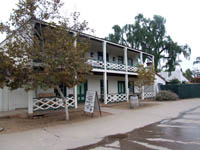
Robinson-Rose House
|
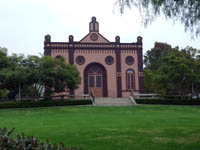
Old Temple Beth Israel |
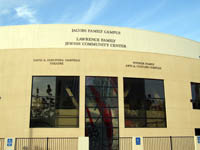
Lawrence Family JCC |
Editor's Note: We are reprinting news articles that appeared in back issues of various San Diego Jewish newspapers. You may access an index of the headlines of those articles by clicking here. You may also use the Google search program on our home page or on the headline index page to search for keywords or names.
Welfare Society Adds New Service
From Southwestern Jewish Press, June 1949, page 3
Because of the steadily increasing number of requests for housing and employment the Jewish welfare Society is starting a new service which will attempt to streamline the integration of newcomers into San Diego as well as to take care of the needs of indigents and transients. Morrie Douglas, President of the society, in announcing the new activity said that the case load in San Diego has increased every month and that the Society’s activities are more and more being spread to members of lay committees.
“Requests for employment or housing should be directed to Jeanette Tobias, director of the Society” Douglas said, “and employers would benefit by contacting the office of the Welfare group to help the program. The Jewish Welfare Society is a separate agency sponsored by the Community Chest of San Diego and although its offices and works closely with the United Jewish Fund it derives no financial support from that body. The Society acts as a liaison agency for Jewish Indigents and the Community Chest.
J.C.R.A
From Southwestern Jewish Press, June 1949, page 3
By Anna Brooks
Glowing tribute to the City of Hope came this month from two of the nation’s leaders; Vice President Alban w. Barkley and Dr. Morris Fishbein, editor of the Journal of the American Medical Association. They hailed the outstanding medical work being done at the City of Hope and its policy of excellent care on a free non-sectarian National basis.
At Duarte the patient is king. Every service of the Sanitarium is designed for his welfare in such a way that though it is free, it never carries any feeling of charity.
Guests who attend meetings of the local Jewish Consumptive Relief Association at Temple Center the third Tuesday of each month, are so impressed with the accomplishments of this energetic group, that they join without hesitation. A non-profit luncheon is served before each meeting. “Visitors are always welcome,” says Mrs. Esther Schwartz, J.C.R.A. president.
Daughter Born to Rabbi and Mrs. Stern
From Southwestern Jewish Press, June 1949, page 4
Rabbi and Mrs. Baruch Stern, 3502 32nd Street, announce the birth of a daughter on Saturday, May 7, 1949, at Hillside Hospital. The baby was named Dena and joins a two-year old brother, Seephan in the Stern household. Rabbi Stern is spiritual leader of Beth Jacob Congregatoin.
Ida Nasatir on Speaking Tour
From Southwestern Jewish Press, June 1949, page 4
The talents of Ida Nasatir, that we in San Diego have realized for so long, are now being recognized in national circles. Mrs. Nasatir spoke under the auspices of the United Jewish Appeal in Pasadena last week. On June 8 she will be the principal speaker at the Mizrachi donor luncheon in San Francisco.
Poale Zion
From Southwestern Jewish Press, June 1949, page 5
Sam Slayen, president of Poale Zion Organization, newly organized labor Zionists of San Diego, announces the call from Israel for Haoved (skilled workers). According to the latest reports, skilled workers in the building trades are sorely needed in the new state, and those who qualify, regardless of age, will be furnished transportation to Israel. For additional information call Mordicai Schaefer at W 7-3361.
Poale Zionists meet once a month at Tifereth Israel Center. On the last Saturday of each month the group gets together for a Malva Malke and enjoy Chassidic songs. The group welcomes visitors.

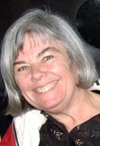 Nancy Harrison Nancy Harrison
cruise & tour specialist
(619) 265-0808

San Diego Jewish Trivia Answers: 1)Bill Starr 2) Leroy Neiman.


SAN DIEGO JEWISH WORLD THE WEEK IN REVIEW
The Arts
Former Navy base bursts with creativity by Donald H. Harrison in San Diego
Thursdays with the Songs of Hal Wingard
—#71, The Magic of Love
—#125, Camaraderie
Author believes Israel's salvation is secular by Fred Reiss in Winchester, California
Adventures in San Diego Jewish History
—June 1949:Shevous Services Feature Confirmations
—June 1949:Leaders Spur Activities to Complete 1949 Fund Drive
—June 1949:Hillel Awards Interfaith Scholarships at San Diego State College
—June 1949:Developing Youth Leadership
Middle East
Key to Mideast peace not change among the Israelis but among the Palestinians by Shoshana Bryen in Washington D.C.
Australia
A Roundup of Jewish news of Australia by Garry Fabian
—Jewish scholar sees softening attitudes among Jews towards 'Messianic Jews'
—Alarm about Messianic Jews
—Star studded line-up for Sydney Jewish Writer Festival
—Makor Jewish Resource Library to expand
—Courage to Care - A tool to fight racism and prejudice
—Should Shoah education be made compulsory?
—From Jakarta to Perth
—Jewish Community Chatfest
—South African Community continues consolidation
Adventures in San Diego Jewish History
—April 1949: Caravan of Hope Arrives April 11th
—May 1949: Fund Leaders Attend Celebration of First Anniversary of the Republic of Israel
—May 1949: Hadassah
—May 1949: Beth Jacob Auxiliary
—May 1949: Nu? by Red Borscht
—May 1949: Ceremony May 30 {Decoration Day}
—May 1949: Personality of the Week (Levi Eshkol)
Arts
A lesbian comes out to the Orthodox followers of her father, the Rav by David Strom in San Diego
Israel's history, geography, customs for preschoolers before the High Holidays by Donald H. Harrison
Middle East
U.S. should heed Israeli lesson in Lebanon by Ira Sharkansky in Jerusalem
Some questions Obama should ask Abbas by Shoshana Bryen in Washington D.C.
The New York Times & 9th Commandment by Sheila Orysiek in San Diego
San Diego/Arts
Strom's klezmer hero helps save Pinsk by Donald H. Harrison in San Diego
Adventures in San Diego Jewish History
—April 1949:Our Policy
—April 1949:Introducing Our Columnists by Lewis Solomon and Ray Solomon
—April 1949:Leaders Herald Return of Jewish Press
—April 1949: United Jewish Fund Campaign For $309,000 to Open This Week
Lifestyles
Cane-raising at 60th college reunion by Natasha Josefowitz, Ph.D
USA
'Never Give In' is Arlen Specter's credo by Sheila Orysiek in San Diego
San Diego
San Diego, Tijuana to join in worldwide salute to Tel Aviv's 100th anniversary by Donald H. Harison in San Diego
Adventures in San Diego Jewish History
—August 7, 1947: Week at Palomar Closes Program
—August 7, 1947: Letter from Albert Hutler to Ray Solomon
—April 1949: Cavalcade To Trace Record of Lasker Lodge
—April 1949: J.W.B. Returns to San Diego
Middle East
Olmert's fingers on levers of power make those who would oust him quite cautious by Ira Sharkansky in Jerusalem
Judaism
Culture of death versus culture of life by Rabbi Leonard Rosenthal in San Diego
Stopping gossip—one hour at a time by Rabbi Baruch Lederman in San Diego
Adventures in San Diego Jewish History
—July 31, 1947: Pioneer Women
—July 31, 1947: Yo-Ma-Co
—August 7, 1947: Jewish Press to Suspend Publication: Decision Announced at Meeting of Representatives
—August 7, 1947: Announcement {Suspension of Publication}
—August 7, 1947: City-Wide Picnic at El Monte in Sept.
—August 7, 1947: Young Folks Zionist Group Formed
Arts
An errant yet charming father returns by Carol Davis in San Diego
Sports
A bissel sports trivia with Bruce Lowitt in Clearwater, Florida
Middle East
The heroes of Israel, from the Exodus hunger-strikers to Goldwasser and Regev by Judy Lash Balint in Jerusalem
San Diego
Making children smile, aiding world peace by Donald H. Harrison in San Diego
Arts
Nathan Detroit and friends trodding the boards at Moonlight Amphitheatre in Vista by Carol Davis in Vista, California
Chapter 17 of Reluctant Martyr, a serialized novel by Sheila Orysiek in San Diego
Adventures in San Diego Jewish History
—July 31, 1947: Lasker Lodge B.B.
—July 31, 1947: Jewish War Vets
—July 31, 1947: Jewish War Vets {Auxiliary}
—July 31, 1947: USO-JWB Activities
San Diego County Jewish Trivia: Balboa Park by Evelyn Kooperman in San Diego
Link to previous editions
< BACK TO TOP
|
